Gillian Flynn, Killer Queen
The writer of Gone Girl and Sharp Objects—which premieres today on HBO—knows women can be just as brutal as men.
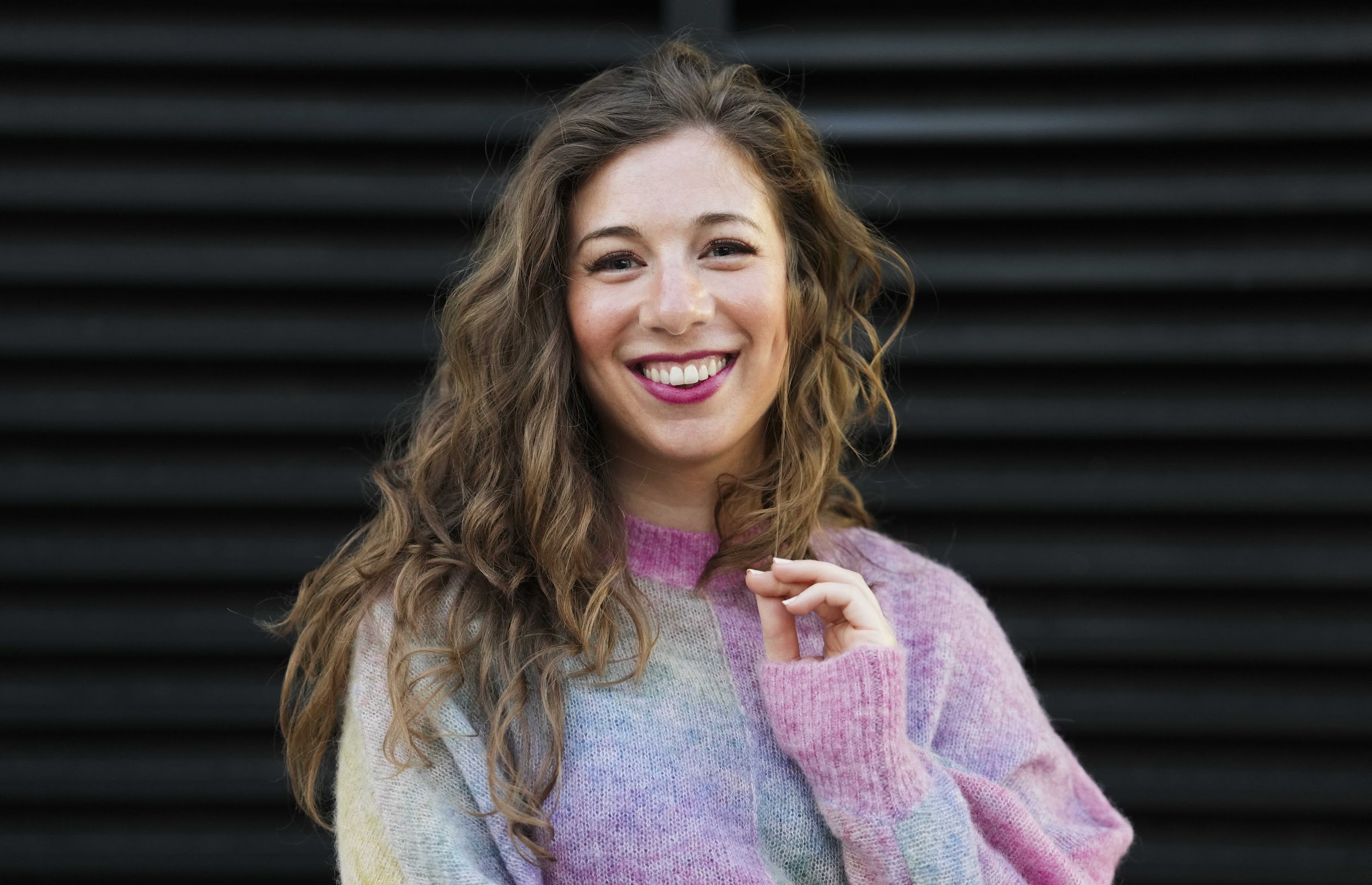
This is really a banner time for clueless men in positions of power, so it’s fitting that the police chief in Sharp Objects, tasked with solving back-to-back homicides, has no idea what he’s doing.
Like most men who find themselves in a narrative of Gillian Flynn’s making, he underestimates women only to be out-maneuvered by them. And he is so unaccustomed to thinking of women as capable of violence that he does not see what is directly in front of him: A crime so intimate in its horror, it’s almost certain the culprit is female.
“Power can be bloody whether it's a patriarchy or a matriarchy,” Flynn tells me. “It just happens to look different. But it doesn't mean that just because women are in charge it's going to be prettier.”
The 47-year-old writer is expounding on the ugly truth of the human condition over pizza and two sources of caffeine—soda and a latte—at Gemma in the Bowery Hotel. It’s her attempt to rally against exhaustion following a delayed flight that deposited her in New York City around 2 a.m. after a two-day stint in L.A. This lunch seems like the closest thing to a break she’ll get in a day packed with press engagements, though Flynn seems unfazed: not rushing to order, not checking her phone, and not, as you might expect, squeamish about the finer points of female brutality.
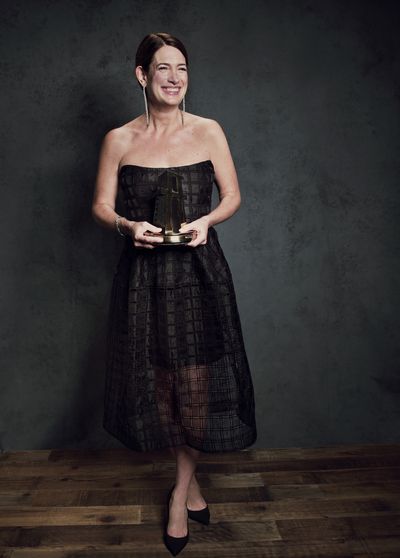
Flynn, after accepting the screenwriter award at the 2014 Hollywood Film awards.
In Sharp Objects, premiering on HBO this Sunday, Camille (Amy Adams) is a reporter freshly sprung from a psychiatric ward. Her menschy editor sends her to her hometown of Wind Gap, Missouri, the kind of do-nothing place where teenagers pass time with petty misdemeanors (loitering, underage drinking, more loitering but on roller skates!) until they get married to someone from their high school, have kids, and start the whole song and dance over again. Camille’s assignment is to cover two recent grisly crimes: A young girl was found dead in a river with her teeth yanked clean out of her gums, and another has gone missing.
Camille bunks in her childhood bedroom under the questionable guardianship of her mother, Adora (Patricia Clarkson), who is like Emily Gilmore if she were possibly a sociopath, and half-sister, Amma (Eliza Scanlen), who plays the darling daughter at the dinner table then Heather Chandlers it up as soon as she’s out of her mother’s sight.
Our protagonist is a haunted person, bearing a lifetime of accumulated pain and rage. She feels her skin screaming at her; only carving words into her flesh will silence it. She wears long, dark sleeves to hide her scars. This also happens to be Flynn’s preferred aesthetic—on her first visit to the Sharp Objects set, “I was wearing the same clothes that Amy-as-Camille was wearing,” she says: black jeans, black top. “I'm going to invest in some new pieces.”
Stay In The Know
Get exclusive access to fashion and beauty trends, hot-off-the-press celebrity news, and more.
“Power can be bloody whether it's a patriarchy or a matriarchy.”
Flynn wrote Sharp Objects 12 years ago while she was a pop culture reporter for Entertainment Weekly. She wanted to write about “the dark side of female psychology,” to create a female character she hadn’t seen much in contemporary fiction, far from the then-dominant Bridget Jones type. “[I was] really casting about for, Where are these other kinds of books that so many men had access to?” she says.
She’d planned on being a crime reporter, enrolling in the Medill School of Journalism at Northwestern University. That is, until she realized “just because you're interested in crime does not mean you would be a good crime reporter,” she says. In fiction, you can write the closure you crave. In true crime, “you may never come up with an ending at all.”
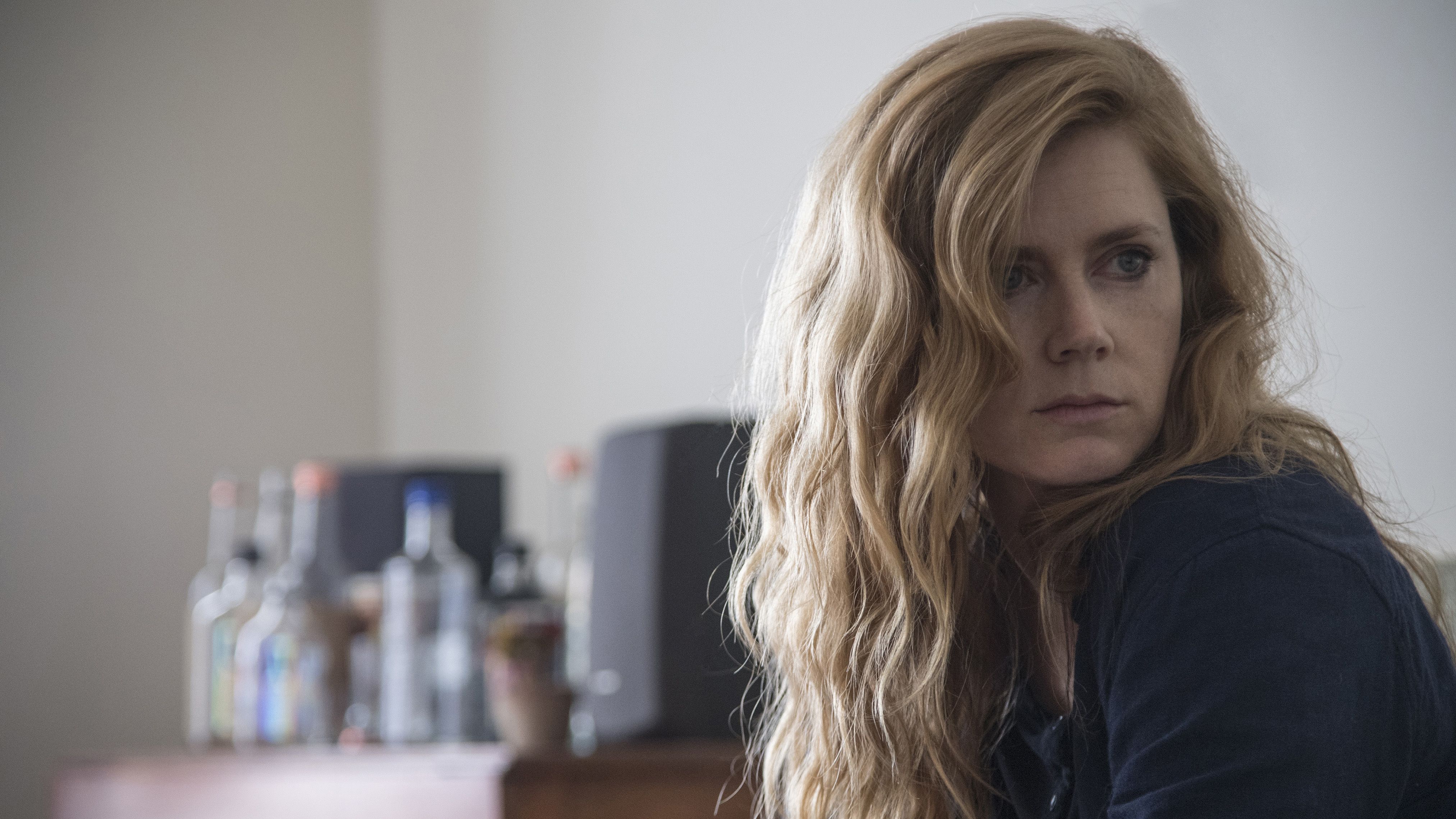
Amy Adams as Camille in HBO’s adaptation of Sharp Objects
Though Sharp Objects won critical acclaim when it published in 2006—Stephen King, professional nightmare manufacturer, called it “an admirably nasty piece of work”—that success was preceded by a lot of feedback in the key of, “maybe too dark for our audiences,” Flynn remembers. Camille was “hard to root for, not heroic enough,” according to the many, many rejections Flynn received. “There was a lot of concern that she wasn't likeable.”
Megan Abbott, prolific novelist and writer on HBO’s The Deuce, however, was taken with Sharp Objects right away. “It was so wildly audacious. That is the word I always think of when I think of her books,” Abbott tells me by phone. (The two writers corresponded for a while before finally meeting about five years ago; Abbott says she and Flynn are “crime fiction pals.”)
“She just goes to places few writers go to, but somehow, she taps into this unconscious thing—you feel like you knew it before but couldn’t say it out loud,” Abbott says, especially when it comes to women. “There’s always this sense that there are things women experience but aren’t supposed to talk about: feelings of aggression, or how one feels about one’s mother and one’s daughter…. So you so rarely see it in books, unless it’s heavily concealed or wrapped in that kind of artifice. Gillian’s books, it’s just always all there, and there’s just no fear. She writes fearless books.”
For years, the rights to Sharp Objects had “just been lying there unused,” Flynn laments. “No one knew what to do with it.”
Then in 2014, producer Jason Blum (Get Out) decided to turn it into a feature film. Meanwhile, Marti Noxon, TV veteran (UnREAL, To The Bone, that season of Buffy you loved so much), became a Flynn fan: She read Gone Girl and—as she put it at last month's ATX festival—thought, Who is this twisted woman? I need to know her. Noxon called Blum to convince him to make a miniseries instead of a movie, then became showrunner. Flynn joined as a writer and executive producer, and Jean-Marc Vallée (Big Little Lies) came on to direct.
In those intervening years, television caught up to Flynn’s worldview, blossoming into a medium where longform, nuanced storytelling could flourish.
“When we were growing up, this would’ve been a Lifetime movie. That speaks to Hollywood finally being interested in and believing in the impact of dark female stories.”
“[Flynn] and I were joking about this: I love Lifetime movies, but when we were growing up, this would’ve been a Lifetime movie,” Abbott says. “It would’ve been 96 minutes long with commercials. It wouldn’t have this beautiful camerawork and these performances, because they would’ve made it in 14 days. And I think that speaks to Hollywood finally being interested in and believing in the impact of dark female stories.”
Flynn has a track record of arriving early to the zeitgeist (see also: the cool girl riff). With Sharp Objects, she seemed to anticipate our cultural fixation with female fury, how women deal with rage and pain in a society that pushes both to the margins.
“In this sort of gender-wars moment, Sharp Objects seems more relevant than ever,” Abbott says. “The female power in that story is immense.... The way that it pushes the men out.... And then you see some of the male response to that, which is feeling a little besieged and confused by it all.”
You could also say that, by writing 2012’s Gone Girl, Flynn created the necessary conditions for a Sharp Objects series. She showed that stories about female characters as vicious, conniving, and complex as their male counterparts could be blockbusters. In publishing, this post-2012 frenzy was sometimes called “the Gone Girl effect.” And on screen, Gone Girl cleared space for a rush of anti-heroines: From Rachel in The Girl on The Train to Marvel’s Jessica Jones to Orphan Black to Flynn’s own latest TV obsession, Killing Eve, which she and her husband, lawyer Brett Nolan, recently binged together.
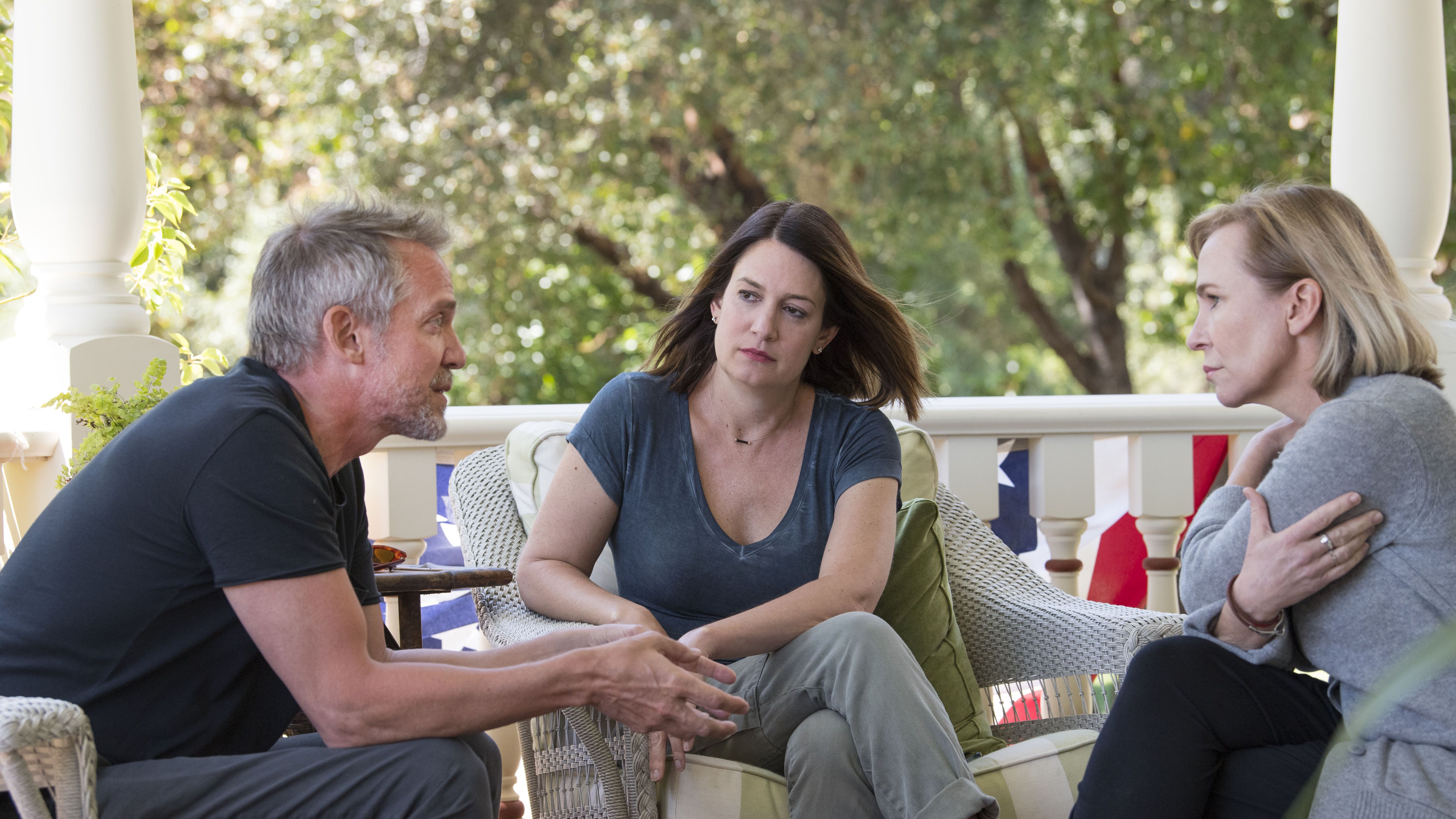
Flynn, center, on the set of Sharp Objects with Jean-Marc Vallée and Marti Noxon.
Camille isn’t messy in a cute, smudged-eyeliner, casual-bedhead kind of way. Her clothes really “look like she’s slept in them,” Flynn says with approval. You can tell Camille, who gulps vodka for breakfast, “has to talk herself into taking a shower in the morning.”
“There’s something freeing about playing somebody who’s a mess,” Adams told Marie Claire in a separate interview. “But the depth of pain that she’s constantly in is tricky. I felt like I had to not back away from it because so many people have a personal experience with this book.”
Still, Flynn doesn't think it “necessarily has to be all about ‘dark female narrators.’ I think it just has to be female narrators in all their varied emotions—dark, good, bad.” Ultimately she thinks our culture is due for “a correction.” “It can't all be about women who are only likeable and good and there to help out the boys,” she says.
“Who is this twisted woman? I need to know her.”
Flynn and Nolan live in Chicago with their two children (plus a black cat), and, as a mother and a writer, Flynn has made it a priority that her kids have a gender-neutral bookcase. But her son is almost eight, and she thinks it’s going to get tougher to keep him as interested in stories centered on girls as her daughter is in stories about boys. “It's not like girls don't read Harry Potter books; I always contend that had it been Hermione Potter, that would have been a problem. It would have been harder to get boys to read those books, whereas girls don't think anything of it because we're used to it.”
Flynn is in the middle of writing her next book and is at work on Utopia, an American adaptation of a British series for Amazon Studios that’s “not necessarily dark female, but dark everyone.”
That’s part of her vision of gender equality: The day we don’t even have to slot shows into the “Girl Power” category, she says, “will be a very good day. It will be such a good day [when] it's just like: ‘Good Story.’”
Though she isn't from one, Flynn has “always been fascinated with small towns.” She was raised in Kansas City (by story-loving community college professors: her dad taught film and her mom, reading), but likes her fiction in places where you can’t escape your past. “Gone Girl had originally been set in Chicago,” she says, but after writing “a good chunk of it…I just realized that doesn't work, because it gave Amy too many options to reinvent herself…. The key to her finally going mad was being taken to this small town and running out of any options” to burn through friends and start over.
“It’s the same thing with Wind Gap. You’re always known for who your family is. You're known for what you did in third grade… I think, you're restricted in a very specific way,” Flynn explains. “And if you're the type of person who is going to play within those boundaries—and a lot of people are—then you're going to be fine. But if you’re someone like Camille, who always [pushes] against that, then that takes you to some very bad and sick places.”
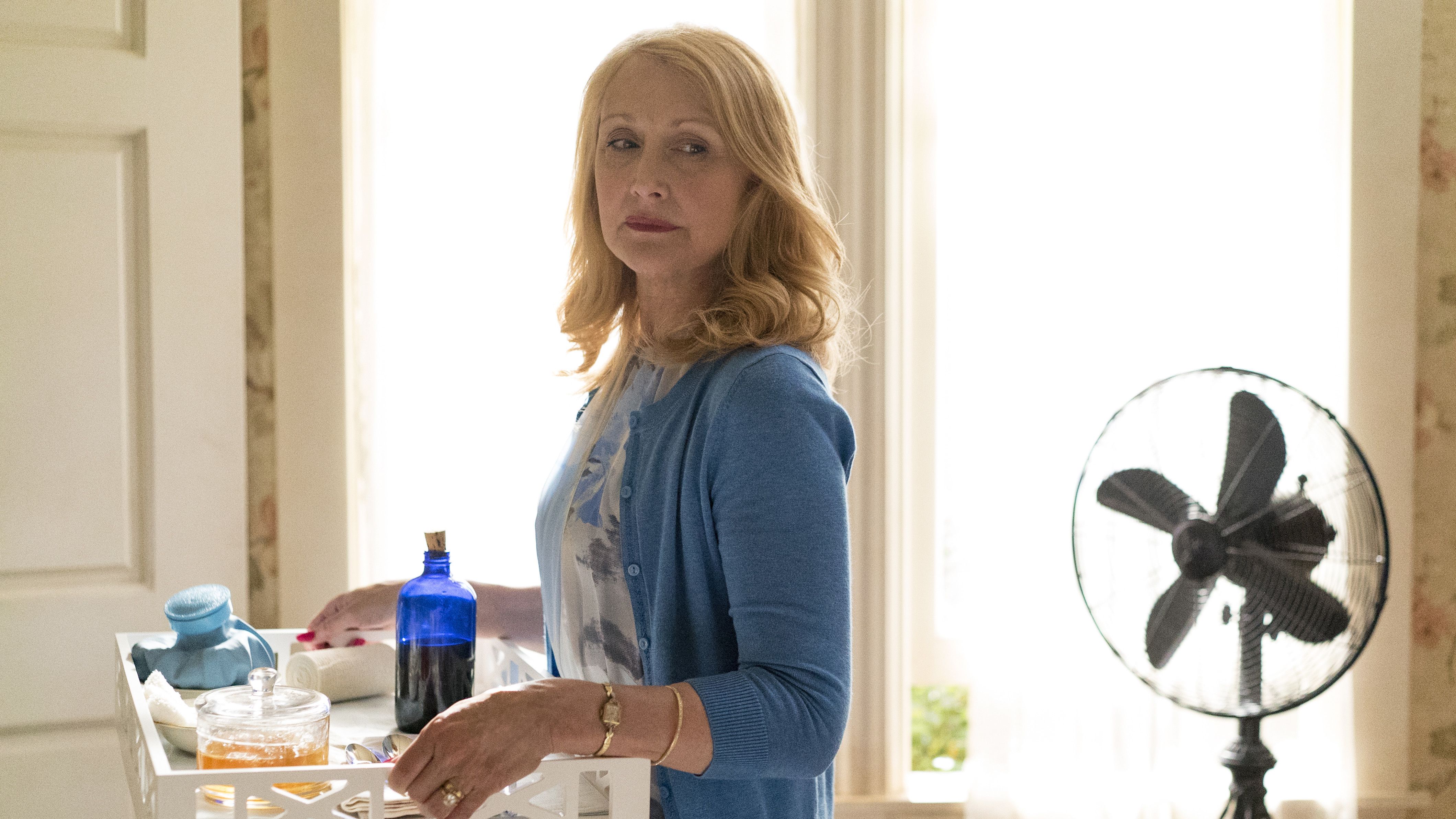
Patricia Clarkson plays controlling matriarch Adora in Sharp Objects.
Under Adora’s gaze, Camille’s town “was controlled by cruelty and it was keeping everyone in place, because that was how you did it,” Flynn says. To paraphrase a popular adage: Wind Gap is the special place in hell for women who don’t help other women. It’s a bit behind our times, Flynn says, where the attitude is still that “if you reach down and help a woman up, that means, automatically, there is less room for you as a woman.”
In Wind Gap, in Sharp Objects, as in so many places, “there's a real restrictiveness and a real desire to hurt those who go out of bounds for women, much more than for men,” Flynn says. “There always has been.”
RELATED STORY
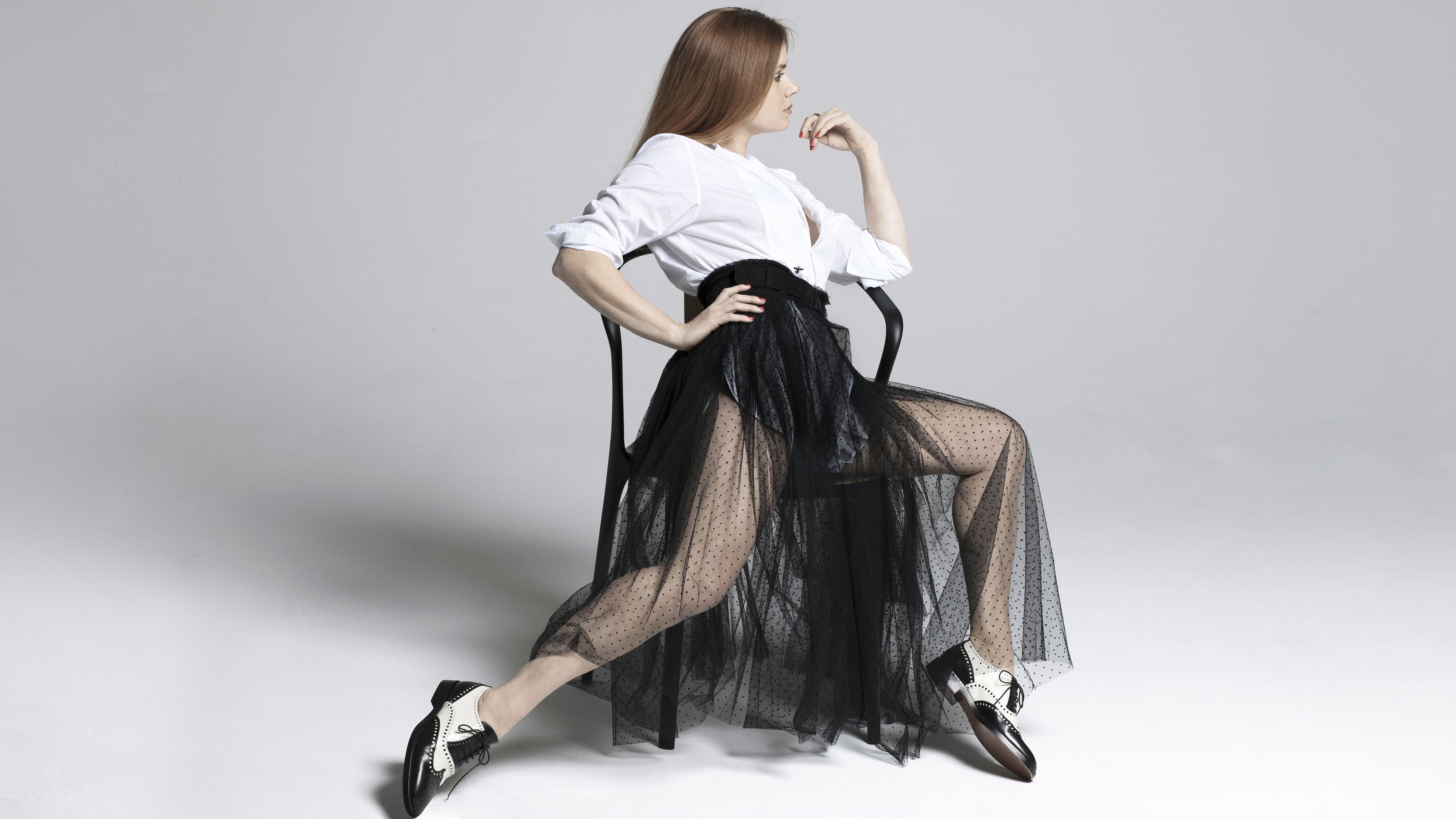
Jessica M Goldstein is a freelance writer covering all things culture. You can read her in the Washington Post, Vulture, McSweeney's Internet Tendency, and elsewhere across the internet. She would love to pet your dog.
-
 Princess Anne's Unexpected Suggestion About Mike Tindall's Nose
Princess Anne's Unexpected Suggestion About Mike Tindall's Nose"Princess Anne asked me if I'd have the surgery."
By Amy Mackelden Published
-
 Queen Elizabeth's "Disapproving" Royal Wedding Comment
Queen Elizabeth's "Disapproving" Royal Wedding CommentShe reportedly had lots of nice things to say, too.
By Amy Mackelden Published
-
 Palace Employees "Tried" to Get King Charles to "Slow Down"
Palace Employees "Tried" to Get King Charles to "Slow Down""Now he wants to do more and more and more. That's the problem."
By Amy Mackelden Published
-
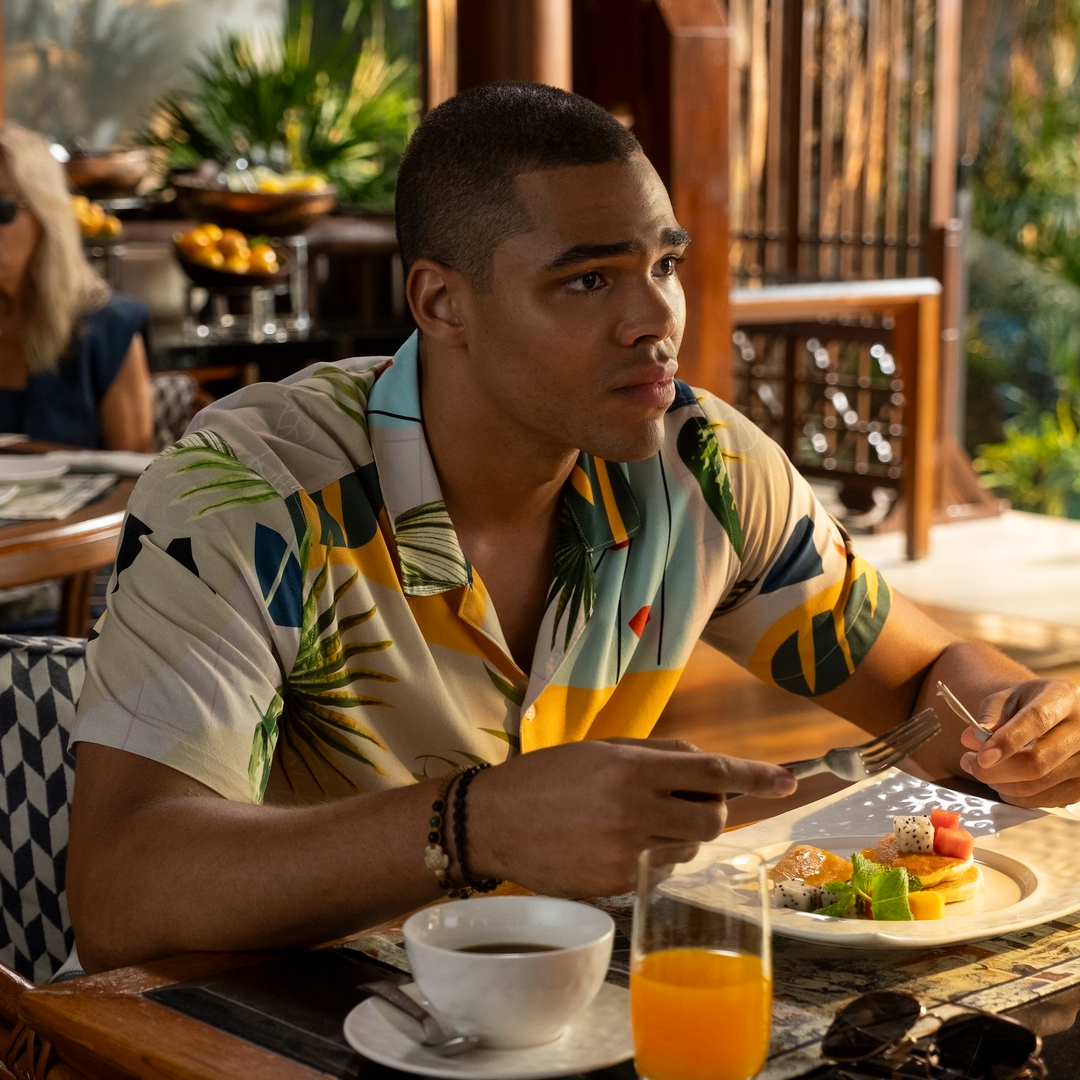 Meet Nicholas Duvernay, the Actor Who Plays Zion in 'The White Lotus' Season 3
Meet Nicholas Duvernay, the Actor Who Plays Zion in 'The White Lotus' Season 3We can't stop thinking about his scene-stealing performance in the finale.
By Quinci LeGardye Published
-
 'The White Lotus' Season 4: Everything We Know
'The White Lotus' Season 4: Everything We KnowCreator Mike White has already started teasing where the next installment will be set—and who might be back.
By Quinci LeGardye Published
-
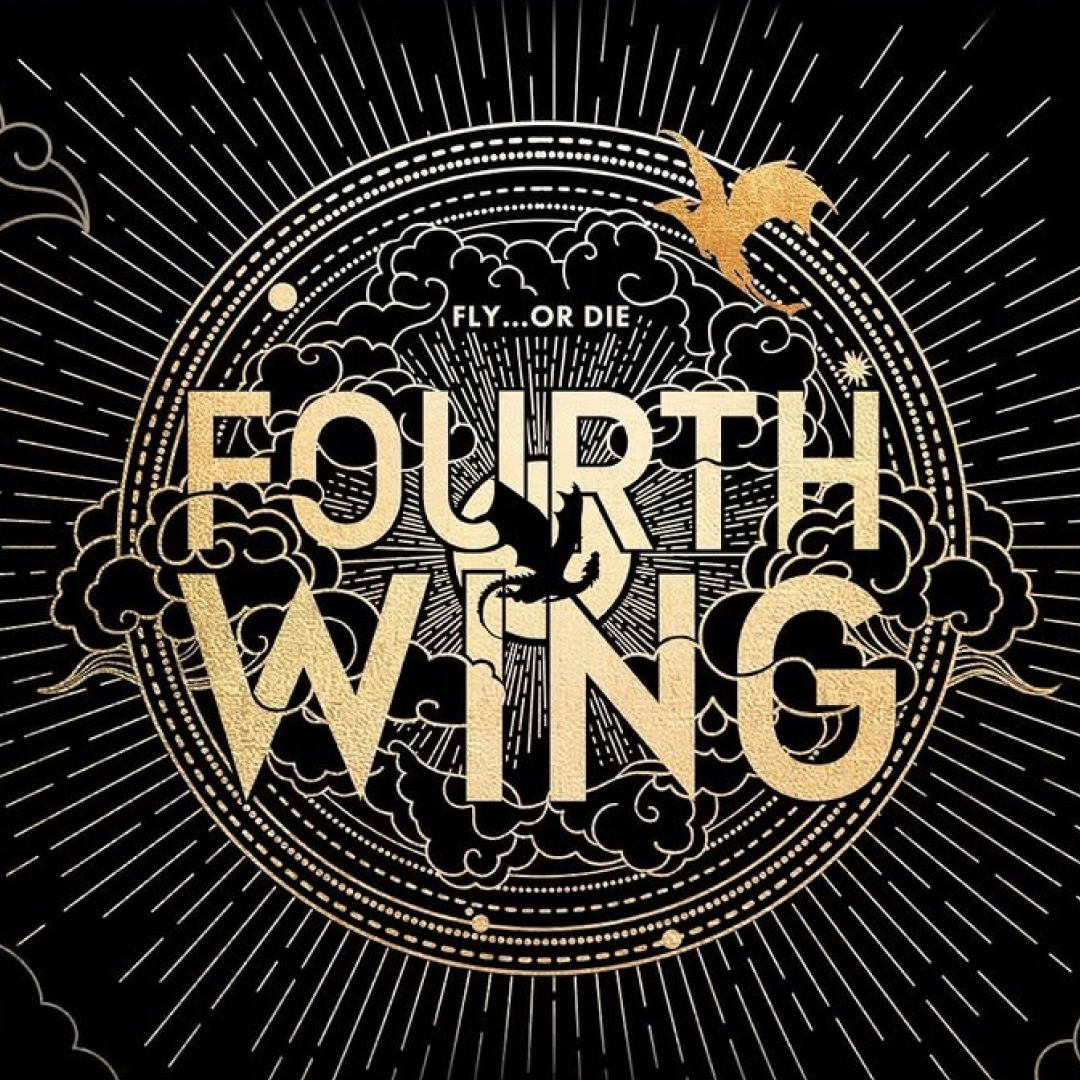 The 'Fourth Wing' TV Show: Everything We Know About the Series Adaptation
The 'Fourth Wing' TV Show: Everything We Know About the Series AdaptationRebecca Yarros's bestselling romantasy series is getting the Prime Video series treatment.
By Quinci LeGardye Last updated
-
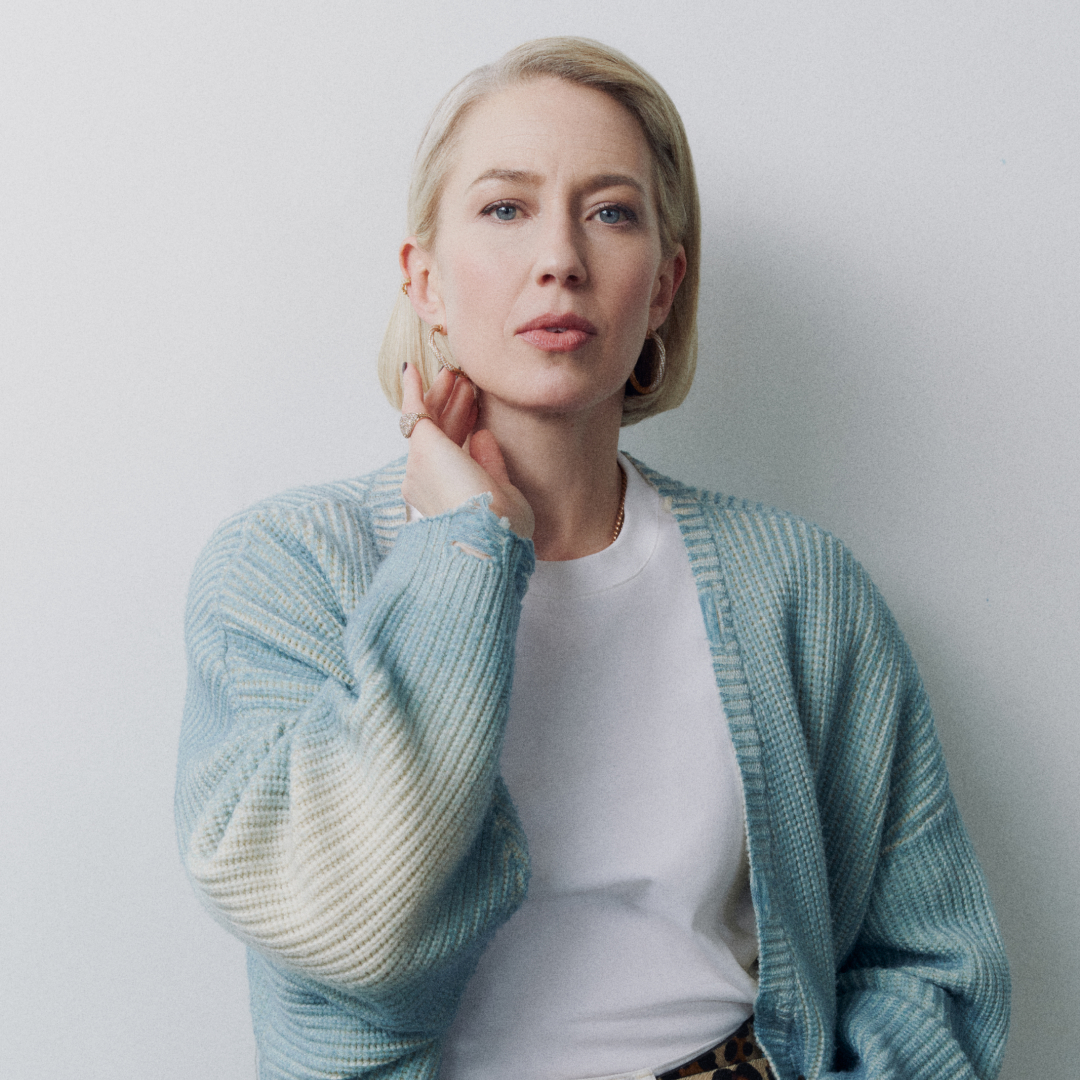 The Wild Ride of Carrie Coon
The Wild Ride of Carrie CoonLaurie's deep-set insecurities come to a head in episode 7 of 'The White Lotus,' allowing the actress to turn a "dark night of the soul" into an illuminating time.
By Jessica Goodman Published
-
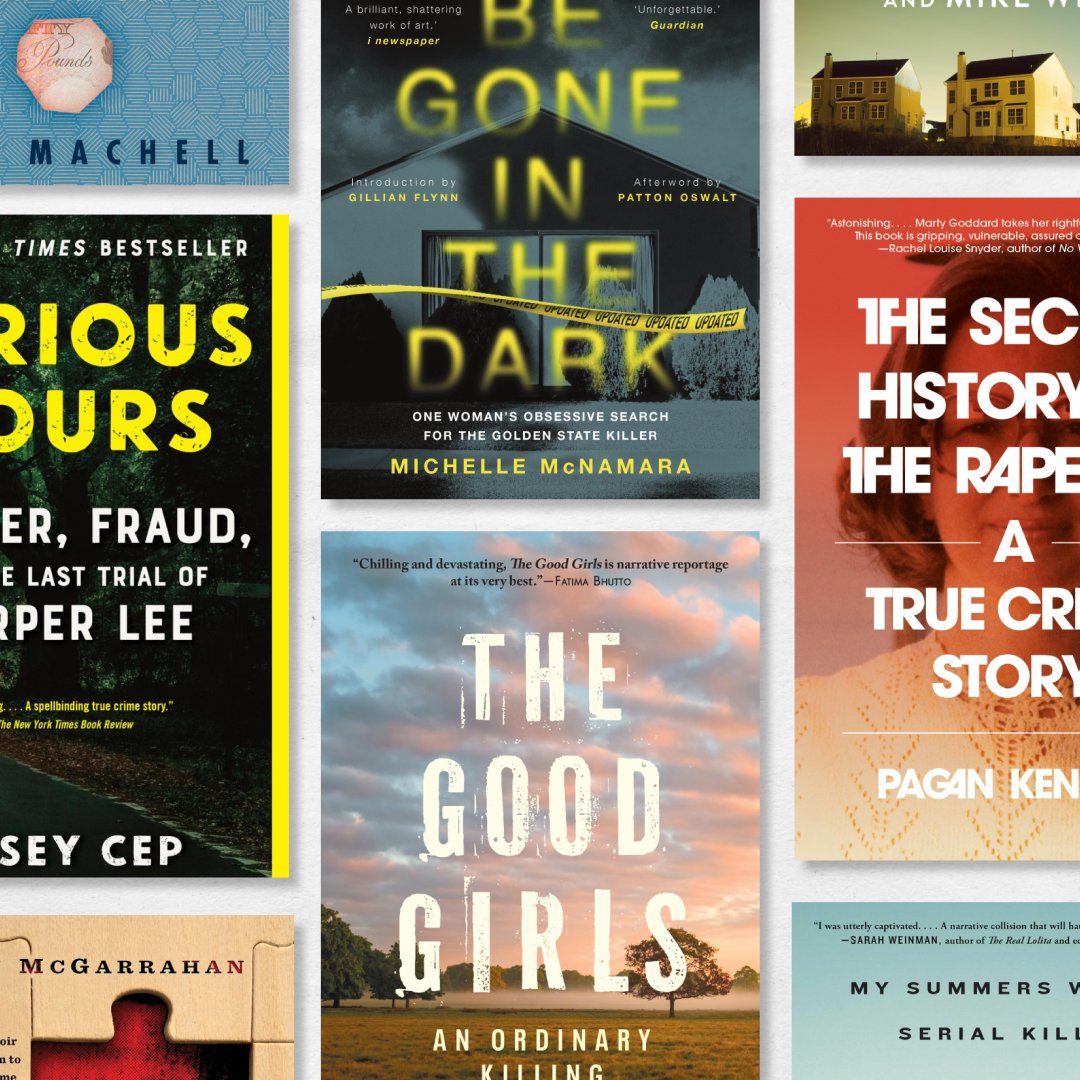 The 20 Best True Crime Books to Read in 2025
The 20 Best True Crime Books to Read in 2025These nonfiction titles and memoirs about serial killers and scammers are the definition of page-turners.
By Andrea Park Published
-
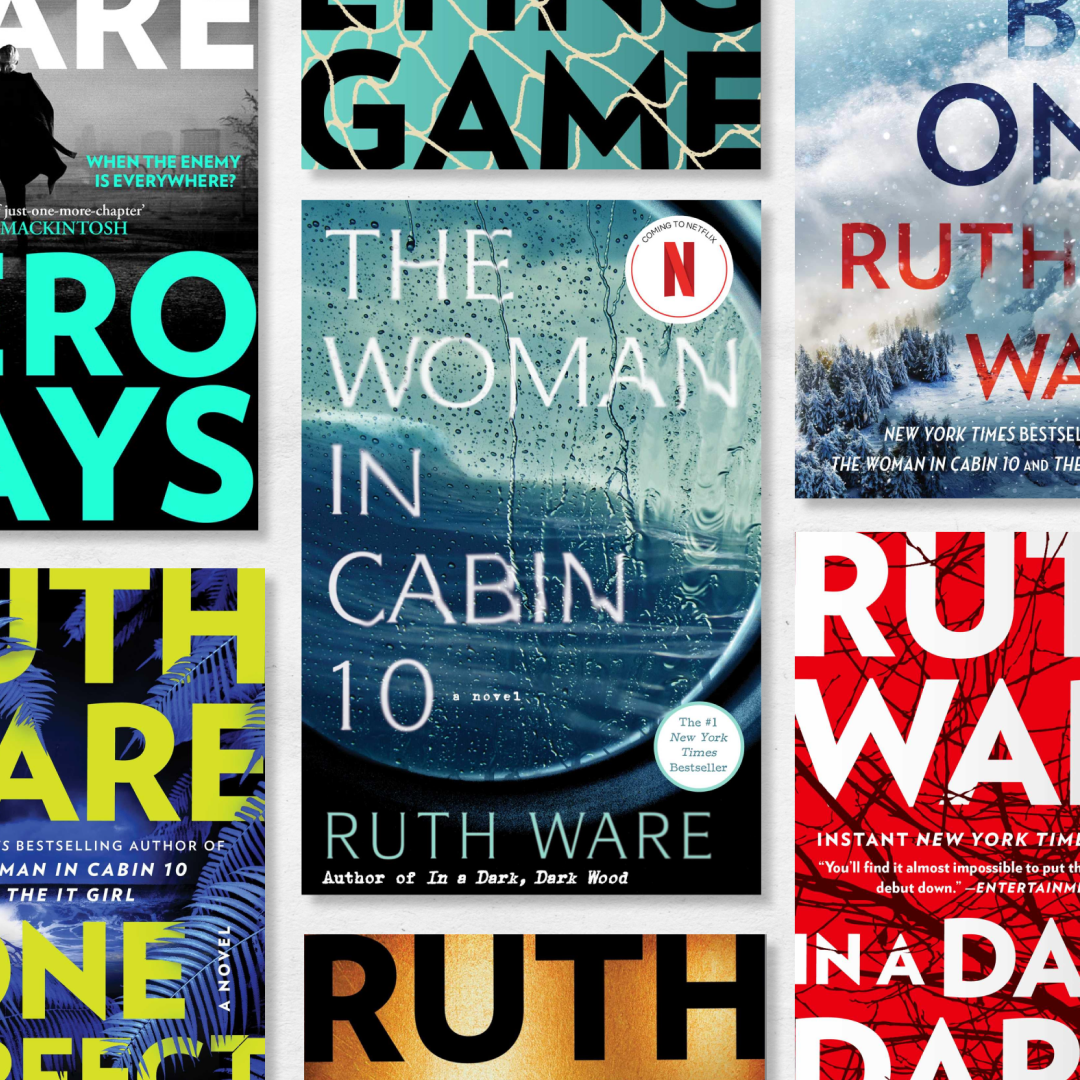 Every Ruth Ware Book, Ranked—From 'In a Dark, Dark Wood' to 'The Woman in Cabin 10'
Every Ruth Ware Book, Ranked—From 'In a Dark, Dark Wood' to 'The Woman in Cabin 10'Here's what you should read before her new thriller 'The Woman in Suite 11' hits shelves.
By Nicole Briese Published
-
 10 Books to Read for a Killer Vacation
10 Books to Read for a Killer VacationPack these novels about vacations gone very wrong on your next trip.
By Liz Doupnik Published
-
 The Melancholic Sound of Success
The Melancholic Sound of SuccessThe artist known as Japanese Breakfast opens up about finding her sound on a new album after experiencing whirlwind success.
By Sadie Bell Published